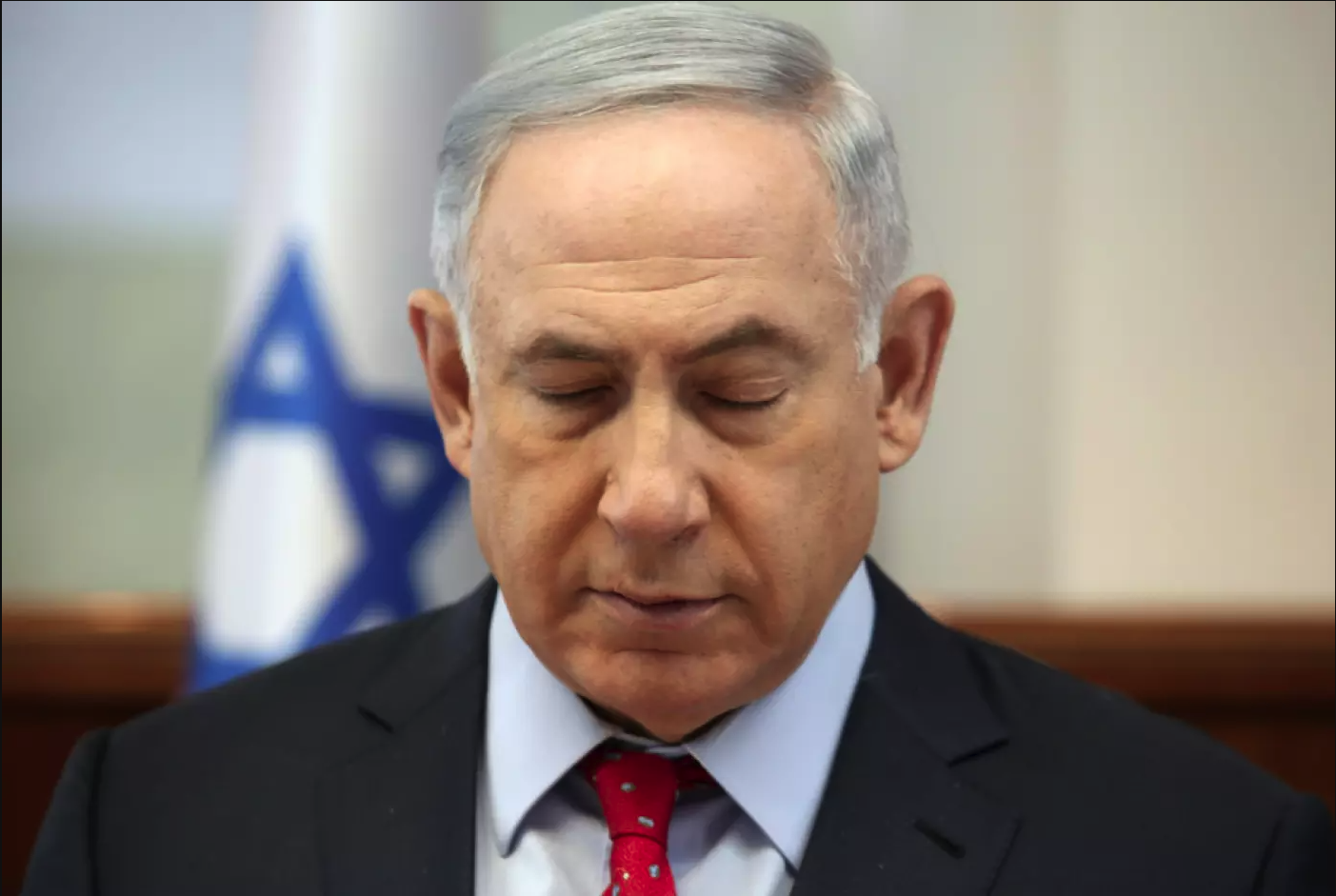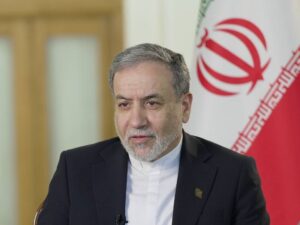
Published 22/11/2023 19:45 | Edited 11/22/2023 20:00
The recent truce agreement in the Gaza Strip brings with it the consequences of an intermediation that raises internal tensions, both in Israel and the United States. Furthermore, the terms of the agreement are ambiguous and reveal the conflicting provisions, just as the pause in the conflict opens up new diplomatic opportunities for a debate for peace. To evaluate these possibilities, the Red Portal consulted international analyst Ana Prestes.
Ana offers a detailed and critical perspective, discussing the late temporality of this pact and its implications for both Israeli domestic politics and global diplomatic relations. One of the perceptions that has emerged among analysts is the surrender of Israel and the USA to an agreement with a group that they both consider terrorist, but which has caused enormous damage to the image of both countries.

“Israel had to admit by name that it negotiated and made a deal with Hamas. A group with whom he spoke that he would not have any conversations, would not have any negotiations, that it is a terrorist group and that it should really continue the bombings”, he highlights.
However, from a diplomatic perspective, the truce isolates Israel and creates an opportunity for the world to see the possibility of peaceful negotiations. For the expert, the agreement brings a moral advantage to Hamas and the Palestinians. “To show the world that, from the beginning, there were proposals for an agreement, which were rejected by Israel”, she adds.
“The burden of resuming the bombings, of resuming the war, will be on Israel’s side. Then the world will see that it is possible to negotiate peace and have some truce. ‘And now you’re going to start bombing again?’ So, this great international embarrassment will be in Israel’s hands,” she notes.
For the expert, it is extremely important how Hamas emerges strengthened from this agreement, because “it is recognized as an interlocutor, as a political force, as an actor”, in the face of a gigantic asymmetry between the military forces in dispute. It remains to be seen how the group will take advantage of this political strength. “From a diplomatic point of view, I think it will force an internal situation in your representation as well, there in Palestine. Who speaks to the world for Palestine?” asks Ana.
Terms favor Hamas
The ambiguity in the terms of the agreement suggests that Hamas will emerge stronger. But Ana Prestes also interprets the agreement as an Israeli strategy to reorganize itself militarily during the truce.
The analyst noted that the terms discussed with Hamas favor its demands in an unexpected way, highlighting the release of Palestinian prisoners that was not initially planned. This change in terms indicated a point of advantage for Hamas.
“That was not on the table. Until the other day, this was not even considered by Israel. In fact, many analysts say that all that action on October 7th was precisely for the release of these people, the Palestinians who are in Israeli prisons without trial, without any legal process. Simply prisoners of war, political prisoners or hostages, however you prefer to say it”, he assessed.
She also considers that these ceasefire days could be important for the entry of supplies.
When discussing the advantages of the truce, the analyst points out that, from a military point of view, Israel has more to gain, allowing a pause for logistical and military reorganization. Ana Prestes pointed out that Israel will have time to reorganize, re-equip and study strategies, while the Palestinian insurgency faces significant restrictions. “They have a lot more room for maneuver. What room for maneuver does the Palestinian insurgency have to reorganize, to dodge, or whatever? She is absolutely surrounded and bombarded.”
Apparently, Hamas does not need a break from its logistics, which are all invisible and low profile, as security analysts say. To continue its gigantic military undertaking, on the other hand, Israel maintains a frenetic pace that demands a military arsenal stock of large proportions and costs. Thus, the truce extends the period to replenish and rethink strategies.
Priority to genocide
Ana expresses her perception that the agreement came “too late” and highlights that it reflects Israel’s reluctance to prioritize life. “I think it came late and came to demonstrate Israel’s unwillingness to prioritize attacks, massacre, genocide and not the preservation of life, including that of its own nationals, of the Israelis themselves,” she emphasized.
She observes an internal debate in Israel, highlighting that conservative sectors resisted the truce, believing that it was not necessary as the situation was already under control. It was highlighted that the internal issue in Israel reflects a significant division, with an ultra-right wing resisting the agreement. She mentions that there are divisions over the post-October 7th approach.
“There is a sector within the Israeli government that thinks that if there is an hour of truce, it is a time when the enemy will equip itself, reorganize itself. So much so that yesterday’s meeting of Netanyahu’s cabinet and his ministers began with him saying we are at war and the war will continue,” he reported.
Pressure from the hostages’ families also influenced decision-making, highlighting the political and social complexity within the country. She says that, the day before, there was significant tension because there was a proposal for the death penalty for Palestinian prisoners in Israel. “There was a huge uprising among the families of the hostages, in the sense that measures like this would only worsen the situation of those in Gaza, in the hands of Hamas and other Palestinian insurgency forces,” she says. There are also American families with hostages there in Palestine, who are also putting a lot of pressure on the government.
In addition to internal pressures in Israel, the analyst points out that the Biden government faces considerable challenges. With his popularity falling, there is growing pressure within the government and among Democrats in the United States, with criticism of North American support for what is called genocide in Gaza. There are concerns about the possibility of a possible genocide in Israel discussed as relevant factors, especially among American youth.
“The big thermometer of this period of truce will be the internal reaction in Israeli society and also in the United States. This will play a role in whether or not they will continue betting on war”, he ponders.
Reactions from the international community
Ana Prestes addressed global reactions, mentioning that, in general, the truce is well received by those who defend peace, such as the Brazilian government. She highlighted the opportunity for diplomatic actors to intervene, drawing attention to the possibility of moving towards an end to the conflict.
Ana Prestes’ view of the international reaction is mixed. She highlights that, while any truce is welcomed by those seeking peace, on the other hand, a ceasefire is expected, and not a mere four-day truce. However, there is an expectation that diplomatic actors will use this moment as an opportunity for peace.
“And I think that the world, from the point of view of diplomatic actors, will have this argument that it is possible to negotiate, it is possible to talk, it is possible to seek solutions and not by force of arms”, he said.
The political scientist emphasized that the truce represents a window for diplomatic interventions and a call for Israel’s responsibility. She expressed hope that the pause period will be used to move towards an end to the conflict.
At the end of the interview, Ana Prestes raised the importance of internal reactions in Israel and the United States as determining factors for the future development of the conflict. “Actors from the main powers can intervene to call Israel responsible for the insanity of continuing to bomb and massacre a population that is already completely destroyed, vulnerable, without the slightest chance of survival there in those conditions”, she concluded.
Source: vermelho.org.br

